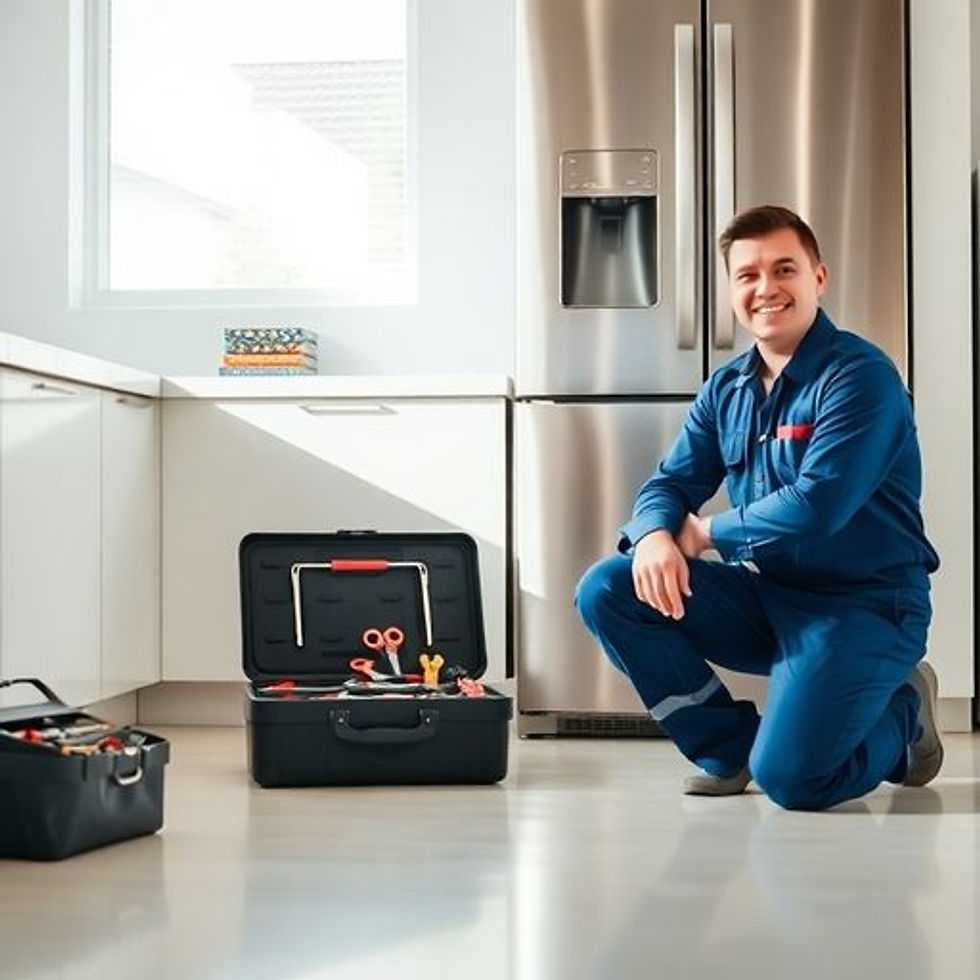New Appliances Are Breaking Down Sooner, Experts Say
- ZIv H

- Dec 2, 2024
- 3 min read
Recent reports indicate that new household appliances are failing much earlier than expected, raising concerns among consumers and experts alike. Repairman Sidney Karam highlights a troubling trend where appliances, particularly from certain manufacturers, are not lasting as long as they should. This issue is compounded by design flaws and a shift in manufacturing practices that prioritize cost-cutting over quality.
Key Takeaways
New appliances are breaking down sooner than expected.
Major brands like LG, Samsung, and Bosch are cited as problematic.
Consumers are increasingly opting to discard appliances rather than repair them.
Design flaws, particularly in self-cleaning ovens, contribute to early failures.
There is a call for stronger consumer protection laws and advocacy for better manufacturing standards.
The Decline In Appliance Quality
Experts are sounding the alarm over the declining quality of new appliances. According to Karam, many of the appliances currently on the market have been manufactured by companies that previously specialized in car parts and cellphones. This shift has led to a lack of expertise in appliance manufacturing, resulting in products that are prone to failure.
Karam notes that some of the worst offenders in the appliance industry include:
LG
Samsung
Bosch
In contrast, he recommends brands like GE, Maytag, and Whirlpool for consumers seeking reliable appliances.
Marketing Influence On Consumer Behavior
The marketing strategies employed by appliance manufacturers have also played a significant role in this trend. Ed McHugh, a business and marketing instructor, points out that the message promoted by these companies is that newer models are inherently better, which discourages repairs. This has led to a culture where consumers are more likely to discard malfunctioning appliances rather than seek repairs.
Environmental Impact Of Discarded Appliances
Karam emphasizes the environmental consequences of this trend. Many discarded appliances end up in landfills, where they can release harmful substances such as lead and electrolytic capacitors. This not only poses a risk to the environment but also highlights the need for more sustainable practices in appliance manufacturing and disposal.
Design Flaws And Their Consequences
Certain design flaws in newer appliances exacerbate the issue of early breakdowns. For instance, self-cleaning ovens are notorious for causing damage due to the extreme temperatures they generate. Karam explains that these high temperatures can lead to failures in electronic components, resulting in costly repairs or replacements.
The Case For Repairing Appliances
Despite the trend toward discarding appliances, a survey from the Canadian consumer group Protégez-Vous reveals that repairing appliances is often more cost-effective than replacing them. Typical repair costs for stoves range from $45 to $345, significantly lower than the price of purchasing a new appliance.
Karam advises consumers to consider repairs before opting to throw away their appliances. He encourages people to avoid features like self-cleaning options that can lead to premature failures.
The Need For Stronger Consumer Protections
The Retail Council of Canada has noted that Nova Scotia ranks among the provinces with the weakest consumer protection laws. McHugh advocates for a push at both federal and provincial levels to strengthen regulations that protect consumers from subpar products. He points to France, which has implemented policies to enhance appliance warranties and ensure compliance with quality standards.
As consumers become more aware of these issues, there is a growing need for advocacy to push for better manufacturing practices and stronger consumer protections in the appliance industry.
Sources
Appliances breaking earlier than expected: experts | CTV News, CTV News Atlantic.






Comments